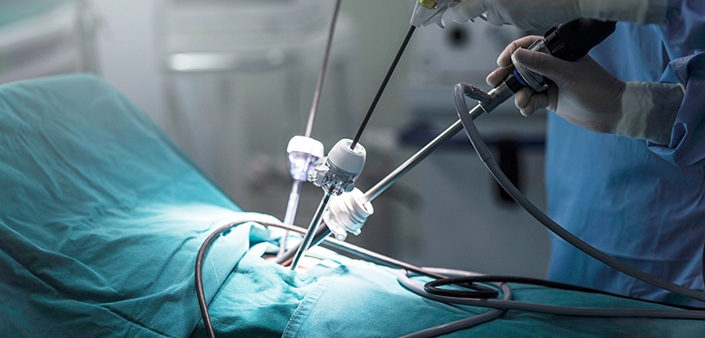Services
Laparoscopy

What is the Laparoscopic or Key Hole Surgery?
Laparoscopy is one of the most advanced technique for surgical procedure that requires minimal incisions and ensures faster recovery. It basically means that using the latest technology in medical science, a major surgical procedure can be performed using small miniscule cuts instead of a big ugly looking cut on the belly.
So a laparoscopy procedure basically allows your doctor to see inside your body in real time, without having to make large incisions. Your doctor can also obtain biopsy samples during this procedure, as well as also perform surgery.
What are the advantages of Key Hole Surgery in Children?
- Less pain
- Early recovery
- Good aesthetic healing with minimal scar
- Decreased hospitalisation and early mobilisation
- Early return to school and work.
Is there any difference between Key Hole surgery in children and adults?
- Many surgical conditions in children are different than adults and require different care.
- The laparoscopic equipment in children consists of smaller length and diameter.
- In children, the abdominal space to work is less also organs are delicate and needs precision and calculated movements
In which conditions the Key Hole Surgery can be performed in Children?
Key Hole surgery can be performed in most of the surgical conditions. The list of the surgeries which can be performed using this technique is as follows.
Most common Indications of Laparoscopic Surgery
- Repair of Inguinal hernia
- Orchidopexy (Non-Palpable Undescended Testis)
- Diagnostic laparoscopy in
- chronic abdominal pain
- bleeding in stool
- intersex disorders
- non-palpable undescended testis
- Ascites due to unknown ethology
- Biopsy (lymph node, Intestinal, Omental)
- Appendicectomy
- Single or multi-stage Laparoscopic Surgery for Hirschsprung’s disease
- Laparoscopic pull-through for Imperforate anus
- Surgery for symptomatic GERD
- Removal of gall bladder for stones, infection
- Removal of partial or complete liver ,spleen when indicated
- Excision of cysts/lumps in the abdomen
- Abdominal wall hernias(umbilical, incisional)
- Surgery for Achalasia Cardia
- Surgery for Malrotation of small bowel
- Surgery for Meckel’s diverticulum
- Surgery for abdominal tumours or cancers
- Nephrectomy, Nephroureterectomy
- Pyeloplasty, Pyelo & Ureterolithotomy(stone removal)
- Ovarian surgery
What are the contraindications of laparoscopic surgery?
- Bleeding disorder
- Unstable condition of a patient





